Could you please give a brief account of what you think is happening on the Russian labour market? Is it the employer’s or the employee's market?
To answer this question, we should analyse today's family institution first. It is evident that people are growing more self-supporting and self-fulfilling in social and personal terms, and neither daily routine nor children can keep the family together any more as it used to be a few decades ago. People stick together because of shared interests and what they can contribute to the development of each other. I think labour relations show the same trend. In other words, employers and employees are now free and demanding in their relations.
Why do you think people want to work at SIBUR?
First, SIBUR attracts people with the immensity of its operating scale and complexity of tasks. Another point of attraction is an opportunity to achieve better results by being part of the company. The feeling of belonging is very important for today's professionals.
In 2016, SIBUR was named the most attractive employer in Russia. In 2017, we won the Most Attractive Employer for Petrochemical Students award. Students are the most liberal people. They are creative by nature and can take the liberty of dreaming. This is why we do appreciate what they think of us.
People will always want to find a job in a growing company with new facilities commissioned, production running, and the customer base expanding. Such a company is associated with efficiency and a focus on talent development. In the best of times, General Electric was well known to grow with its employees. So is SIBUR now. No doer who joins us will go unnoticed or unvalued. This is how SIBUR works.
In 2018, SIBUR was named the most attractive employer in Russia.
Managers and teams
SIBUR's strategy provides for a long-term industry leadership. Every strategy is implemented by people, in no small part by middle management. What does the company expect from these people?
Every company grows through internal and external processes. The current external processes are speed and digital, or digitisation of the environment. Internal processes comprise four equivalent aspects. The first one is a general ability to hear what customers say. It is an ability to put your own concerns on the back burner and try to understand the true motive behind your colleagues' and partners’ actions. The second is technological development. The third is a growing efficiency of business processes. And the final one is employees.
If we take all these factors, external and internal, into account, we will shape an image of SIBUR’s employee of the future. This will be somewhat of a superhero team. By saying it, I mean an employee as part of the company because cross-team interaction – an interaction with the shift from “me” to “us” – is very important. The entire company should have we-centred business processes.
SIBUR's Corporate University factors in all these requirements in its training programmes, does it not?
It surely does. For example, the time of having trained professionals on site is crucial for the company. Next year we will launch ZapSibNeftekhim that will boast the latest production technology, ERP and management information systems. For the first time ever, the decision making process will be supported by a huge, enterprise-wide database. Other production sites also introduce automation, digital solutions and database applications. This is why we should take steps in advance to have professional employees available.
Are you short of human resources?
One of the University's tasks was to look for talents inside the company and fill vacancies with internal human resources. For ZapSibNeftekhim, for example, we had to find 2,000 talents in Tobolsk. Leave Tobolsk alone, they were not available in entire Russia, and we decided to rely on our employees with career ambitions and potential. To avoid any “gaps” in the system, we were also busy filling in the substitutes' bench on our sites.
For ZapSibNeftekhim, for example, SIBUR had to find 2,000 talents.
But all that said, what specific qualities should middle managers possess to fit SIBUR's needs?
Our requirements for the management can be clearly seen in four flagship subjects of our Corporate University. First, all processes around us are growing fast and, in order to fit in, people should be able to think critically – they should be hyper-aware and be able to analyse all incoming information. Second, managers should be able to make informed business decisions. Third, they need fast execution, or an ability to snap into action as soon as an agreement is reached with the customer. And the fourth subject is talent development, which is crucial for us. You see, managers are not about themselves but about others. Managers are functions of their teams.
Do you mean that a manager at SIBUR is a product rather than a leader of the team?
I think no leader is strong if the team is weak. It is but natural to conclude that the leader is a function of the team. If we take a look at how leadership develops, we will see a shift in trends. The company used to be managed vertically. “I say – you do”. The current trend is participation, with the manager shaping the environment and attitudes to team members. A new generation of employees has come – they think different and are unwilling to obey direct orders. They want to be engaged in a dialogue and understand why they should follow instructions.
Business for Environment Programme and Chess Competition Moscow by SIBUR.
You have touched upon the topic of generations. Which generation does an average middle manager of SIBUR belong?
Most SIBUR's managers fall into the age group of 33 to 48 years. But not every change in our approaches to talent development, employee motivation and recognition is directly related to the theory of generations. Those who are 35 today are believed to belong to Generation Y. They have a firm position and are not afraid to articulate it even if it might produce a negative effect. They are free in this sense, but as for their existence in the corporate structure, they are absolutely the same as Generation X because they are fully integrated into the system.
Qualification and footprint
How does SIBUR improve qualification of its employees across Russia given the scale of its investment projects, continuous output growth and a vast footprint?
I think there is a universal law that the more you give, the more you get. This is the reason why we want our employees to get and share knowledge with others in the company.
The Corporate University follows the 70–20–10 principle. It allows us to train employees regardless of their location.
The first 70% is workplace training combined with performing routine workplace functions. Another 20% includes case studies, sharing experiences with coaches, and personal training.
Employees teach, do they not?
Yes, they do. I think there is a universal law that the more you give, the more you get. This is the reason why we want our employees to get and share knowledge with others in the company.
For example, if we want to develop “administrative maturity” in a manager, we need a coach with a similar work experience. If a manager lacks functional knowledge and expertise when transferred to another function, a coach with relevant expertise will help.
What is the remaining 10%?
This includes classroom training, such as seminars, workshops, courses and development sessions, at SIBUR's educational centres. Tobolsk, Tyumen and Moscow are among the most frequent places for classroom training of SIBUR employees. The corporate recreation centre in Anapa on the Black Sea coast is another popular training site. Every year we bring thousands of people there to take part in development sessions and annual cross-functional conferences. The average duration of a training course at the Corporate University is at least 20 days per year.
Russian corporate programme SIBUR Grants 2014.
Does the University have any other functions beyond education?
I am often asked what makes our Corporate University different from others. The difference is that we have training programmes for people at every competence level – from top managers to students. Ultimately, the University is a means of conveying organisational changes in the company. It is a network that connects people concerned with developing themselves and the business they are part of.
Everyone at SIBUR should be receptive of ideas and stay open to new forms of communication.
In the near future, we plan to launch a full-fledged distance training system, which our customers will be able to benefit from, as well. We organise regular educational conferences as part of our annual customer meetings. I think that customer training programmes are an investment in our partnership because being partners means mutual development.
What programmes are available at the University? Are there any new areas covered?
We have management programmes and programmes to develop general competencies, not linked to any particular area. We have introduced standards for knowledge and skills a candidate should possess to occupy a certain position. Functionality, for instance, is the first level of the competence matrix which every employee moves through. We also have a set of educational programmes that cover everything about developing leadership and team interaction, management practices, tutorship, and coaching.
As for new areas of education, early stages of ZapSibNeftekhim construction made us understand that we should also develop technical competencies in our employees. In 2019, the company will open a technical training centre in Tobolsk to be launched in two stages. The first stage covers the development of training programmes. It is nearing completion as ZapSibNeftekhim employees already undergo training. The second stage is to construct a building for the centre, with a daily capacity of 300 people.
SIBUR arranges trainings for its employees.
Customer focus is among the company's top priorities. How does it manifest in HR management? Do you have programmes targeting this priority?
In my opinion, customer focus is to jointly create value. I believe that brilliant ideas thrive either on dialogue or great personal confidence. Apple would have never made it to the top if Steve Jobs had listened to people who proposed making an improved version of Nokia.
It is no less important never to fail meeting obligations and deadlines when working with customers. All SIBUR employees are more or less aware of why these statements are important. No one can join our company without passing a corporate competence test or get to work without completing our employee onboarding programme.
Practices and prospects
We are developing a virtual reality training solution for employees. With the help of VR glasses, they are placed in extreme situations to acquire new experiences.
Which HR management practices – national or international – do you think to have better prospects? Are there any HR innovations you rate high?
I do not divide them into national and international. There are practices that proved to be effective both in Russia and countries that we take guidance from.
The market widely uses coaching, cross-functional rotation, and digital HR solutions to acquire, assess, sel ect and develop talents. As before, most of such HR practices come from the USA because the American market is very dynamic and keeps delivering new products, services and solutions that require the development of new HR management approaches. Our task is to quickly analyse and use them, if applicable.
This is the reason why we visit GE summits in the US every year – General Electric presents a summary of new technologies it has tested. I think that HR cases from any industry can be adapted to specific circumstances, so it is very important to follow organisational development managers from large industrial companies.
You have mentioned digital HR practices. How relevant are they for SIBUR?
Initial selection of candidates can be digitalised while later stages require live communication. And SIBUR is definitely moving this way. For instance, we are developing a virtual reality training solution for employees. With the help of VR glasses, they are placed in extreme situations to acquire new experiences.
Much is being said about the fourth industrial revolution. Taking part in it is a must for SIBUR. But apart fr om technology, the industrial revolution is about new thinking of employees. How does it influence SIBUR's HR policy and curriculum of the University?
Almost everyone has a smartphone today. This small box with a user-friendly interface has drastically changed our life. We know that our actions are meticulously tracked and analysed to create new patterns. The fourth industrial revolution has come with a gadget in hand.
I think it looks rather strange now if someone is not searching for the ways to optimise business processes. Time has become an invaluable resource. For instance, we are running a corporate channel on Telegram. This is also an example of a new, informal way of communication with short messages, many smiles and a large sticker pack. No doubt that it must fit into the business context. But if a picture helps convey information better than a long email, it is the best way to communicate. Everyone at SIBUR should be receptive of ideas and stay open to new forms of communication.
Download PDF

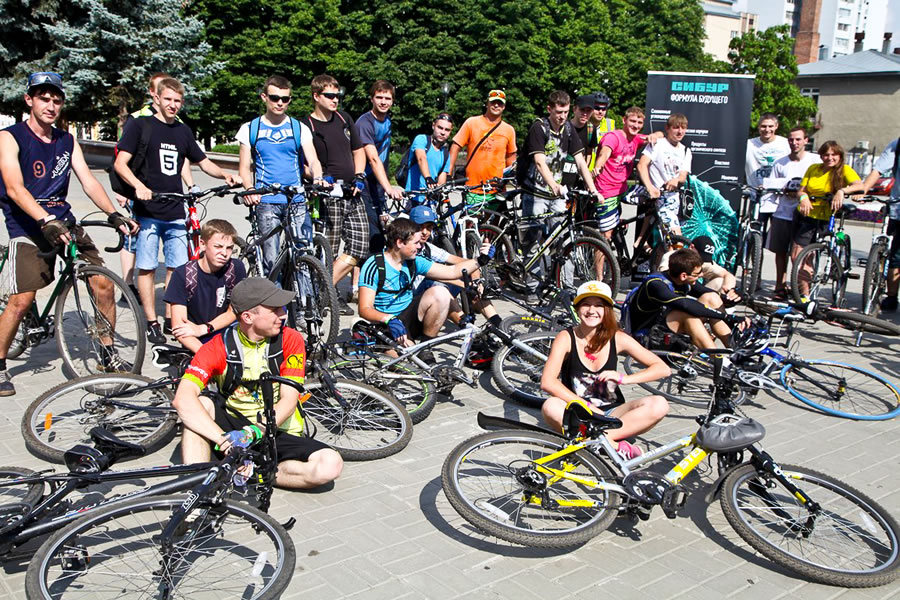
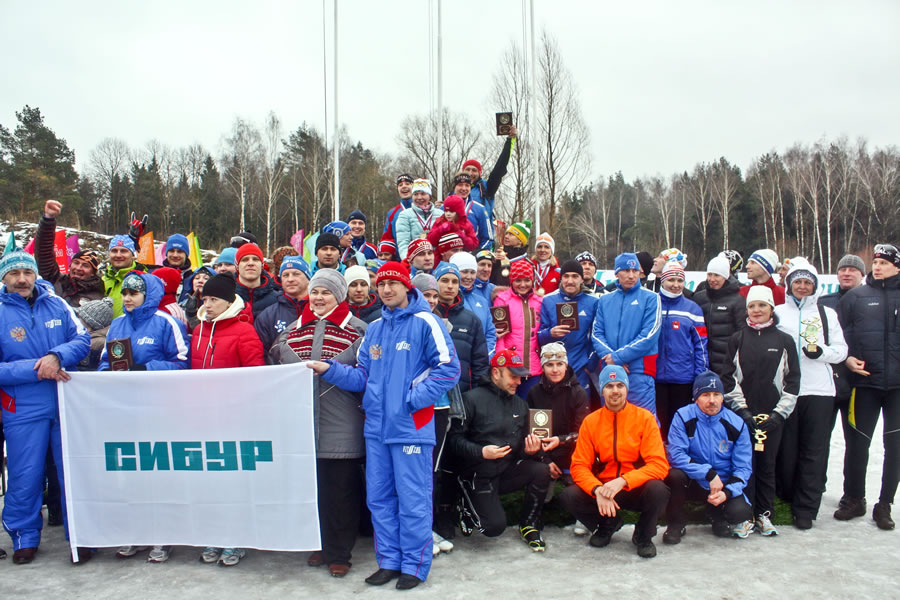

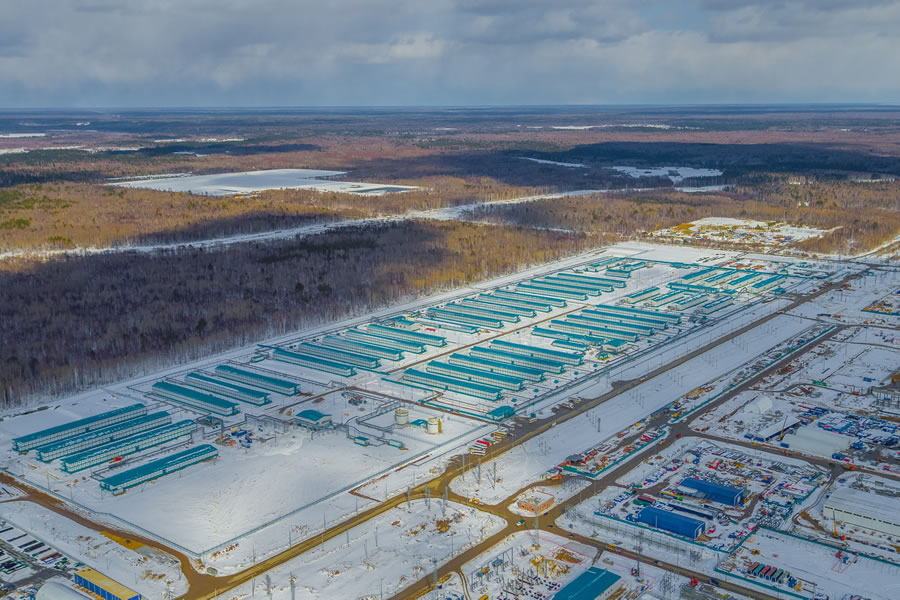
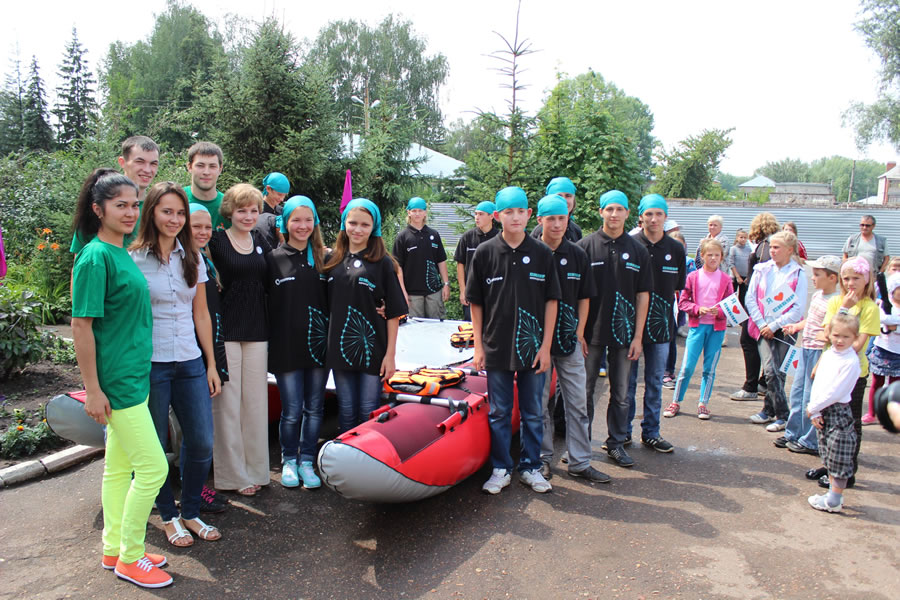
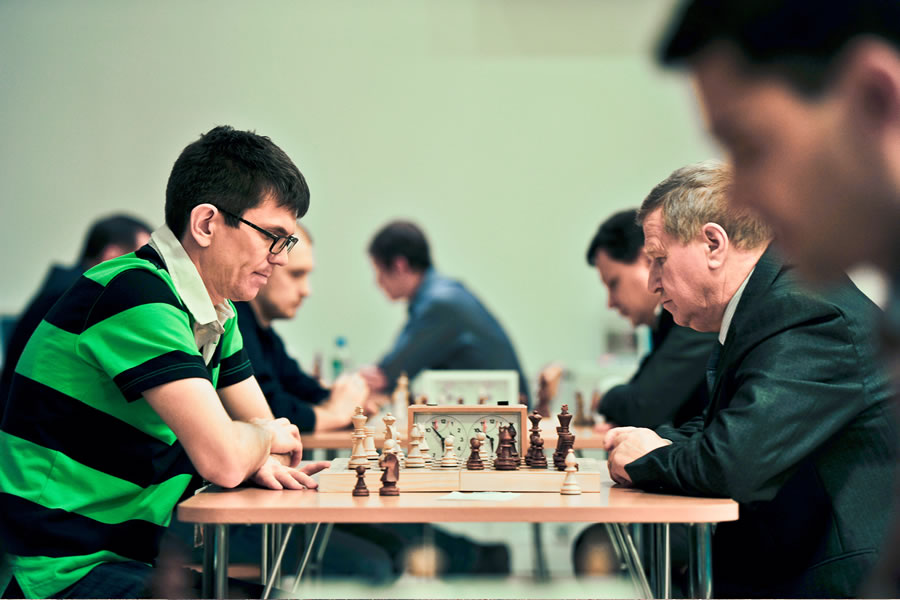
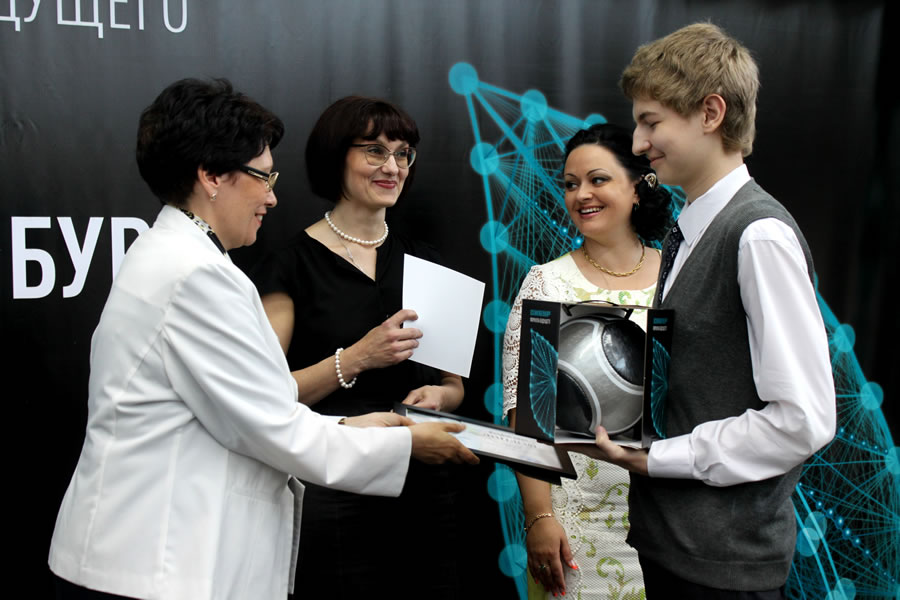
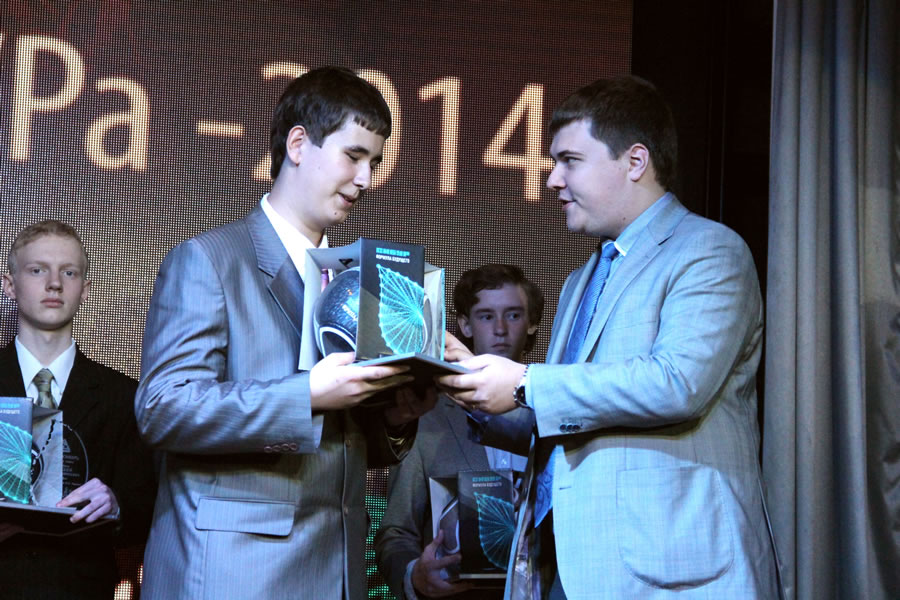
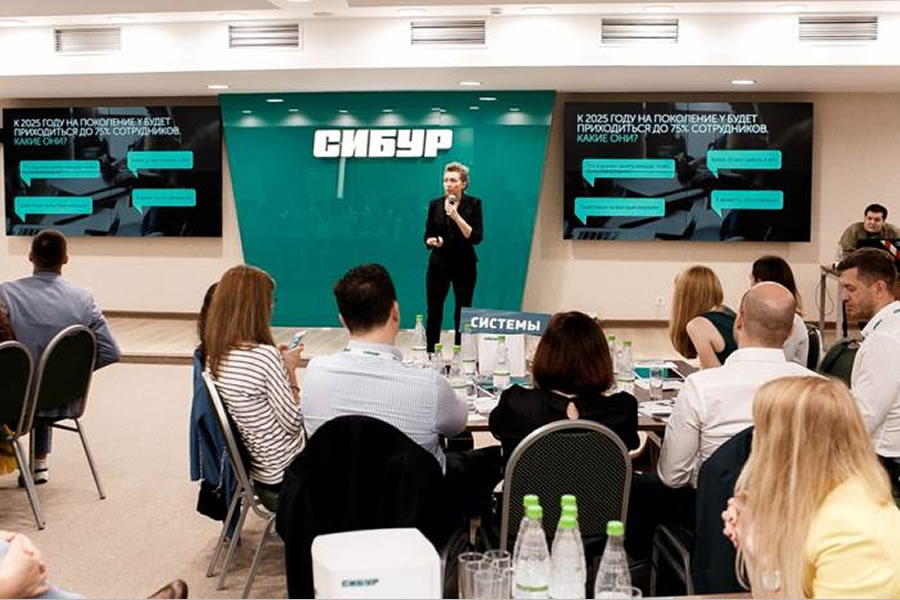
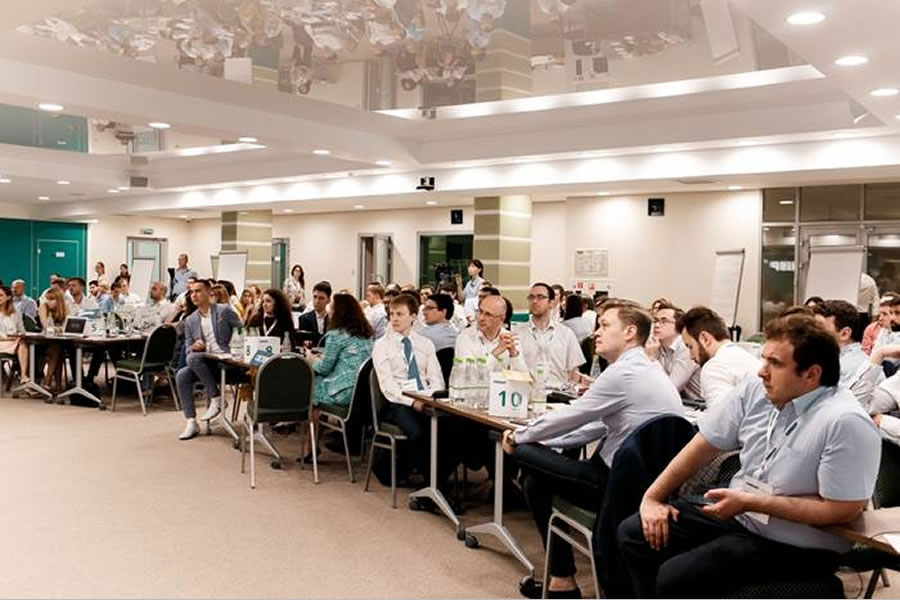
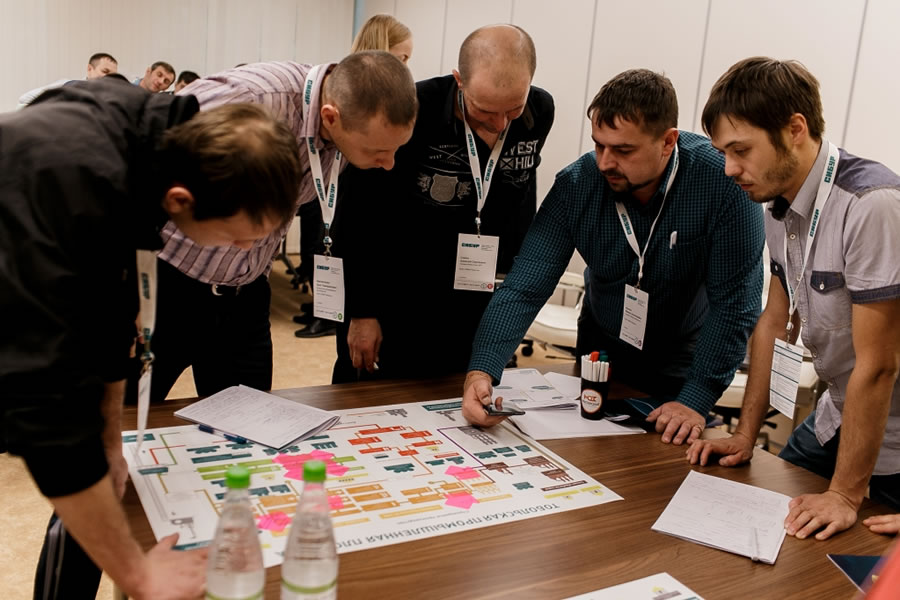
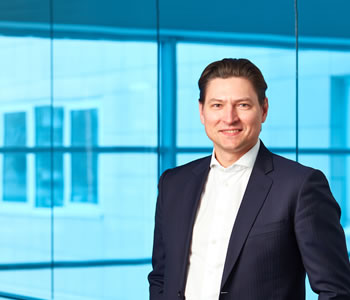


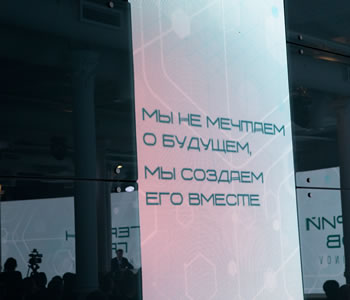

Natalya Yamshchikova
SIBUR's Corporate University Director:
I believe that brilliant ideas thrive either on dialogue or great personal confidence. Apple would have never made it to the top if Steve Jobs had listened to people who proposed making an improved version of Nokia.